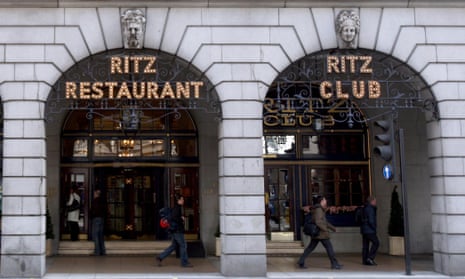A Swiss businessman who lost £2m in one evening on roulette at a London casino has been ordered to honour his debts after failing to convince a court he is a vulnerable gambling addict.
Safa Abdulla Al-Geabury, who has homes in Chelsea in London and Geneva, admitted going on a “frantic gambling spree” that was “frenzied and uncontrolled” at the Ritz Club casino in Mayfair, which markets itself as having ”the most exclusive membership” with ”the highest levels of opulence”.
On the evening of 19 February 2014, after watching an Arsenal football match, Al-Geabury went to the casino and signed a cheque in exchange for roulette chips, but it was eventually returned unpaid. He later requested a further £5m-worth of credit, which was refused.
Al-Geabury, the judgment said, is a “substantial international businessman involved in the financial world” who said that his “capital assets, (inclusive of his art collection) are in excess of US$1 billion”.
But the judge, Mrs Justice Simler, who ruled that he must pay back the £2m plus interest, said he was an “intemperate witness” whose account of events “lacked credibility and was riddled with inconsistency”.
At issue was Al-Geabury’s claim that in November 2009, in an attempt to control his gambling disorder, he excluded himself for life from the club’s casino.
His counsel, Kevin Pettican, told the court that by providing Al-Geabury with facilities to gamble after that date, the club unlawfully breached the terms of its gaming licence.
Al-Geabury, 52, said that before he signed the Ritz form, he had already excluded himself from Grosvenor Casinos and Aspinalls Club. He also excluded himself from all casinos operated by London Clubs International, writing on his form: “I have brain problem. I am addict of gambling.”
As well as contesting the action, Al-Geabury had counter-claimed for £3.4m – or £5.4m in the event that the judge decided he was liable on the cheque. Those sums represent what he lost when he was allowed to gamble between October 2010 and February 2014.
But the judge declared: “The defendant’s claims fail and are dismissed ... The facts of this case are highly unusual and unlikely to be repeated.”
Al-Geabury, Simler added, had “failed to establish that he had any gambling disorder at any material time and ultimately accepted that he never told any of the casino staff about any such problem. He was the author of his own misfortunes.”
The judge added: “At the heart of Mr Al-Geabury’s defence to this claim is his case that he suffers from ‘a very severe and serious gambling addiction which he is unable to control’ and for which he claimed he was receiving treatment as at 8 April 2014.”
Simler concluded, however, that the “evidence was a far cry from establishing the defendant’s account”.
Clive Freedman QC, for the Ritz Hotel Casino Ltd, had told the court that Al-Geabury had used the luxurious surroundings of the Ritz to meet friends and clients where, it was said his losses were of little or no consequence for a man of his wealth.
The Ritz, it was said, had revoked the voluntary self-exclusion agreement following consultation with the Gambling Commission.
The Ritz Club said in a statement: “We welcome today’s decision from the high court. As a responsible provider of gambling we are committed to ensuring the strictest standards of care towards both our customers and staff at all times.”
